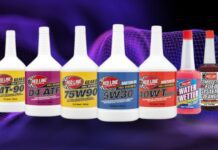There is nothing like a day out in the sun. Whether it’s swimming, boating, surfing, kayaking, fishing, or just lounging on the beach, it provides a relaxing break from the world and is important in reviving and renewing your spirit.


But you also know the sun can also cause serious problems if you’re not careful. Here are some tips to protect yourself from too much sun exposure.
Hat
Wear a big wide-brim hat. Baseball caps are okay for the top of your head but won’t protect the back of your neck. Ideally, you will have something that has a wide brim all the way around and mesh to allow air to flow through the headgear.
Long Sleeve Shirt
Wear a long-sleeved UPF-rated shirt. Many of these are quick dry and you won’t mind if they get wet. They are comfortable and provide good sun protection for your upper body. You might not know it, but recent research has also found that long sleeve UPF shirts will also help to keep you cooler, on those hot days.
Sunglasses
Sunglasses are an important part of protecting yourself from the sun. UV light is scattered and reflected from water, sand, and boat surfaces and makes it especially important to make sure your eyes are protected. Get a good pair of water sports sunglasses. These will be constructed of rugged material that won’t break, will shed water and will be lightweight, flexible and durable.
To make your sunglasses even more enjoyable, consider adding a sunglass leash from LiP.
Sunscreen
The American Academy of Dermatology recommends your sunscreen be broad spectrum, which means it protects against both UVA and UVB rays. Be at least SPF 30 or higher, is water resistant or very water resistant. Sunscreen will wear off, or wash off in the water, so be sure to reapply after a couple of hours.
Sunscreen comes in two different varieties, physical sunscreen and chemical sunscreen. Physical sunscreen acts as a physical reflective barrier between your skin and the sun’s rays. It typically contains zinc oxide or titanium dioxide.
Chemical sunscreen is absorbed into your skin and causes a chemical reaction that helps prevent UV damage.
If you have sensitive skin or any type of skin condition, you should check with your dermatologist to see what they recommend.
Other Tips
Take shade breaks, if possible. Taking short breaks out of the sun is helpful. Stay well hydrated. Be mindful of your alcohol consumption. Stay well fed.
You know how relaxing a day in the sun can be. It can leave you relaxed, refreshed and ready to face the world again. These few simple suggestions can increase your enjoyment and enhance your experience.


























